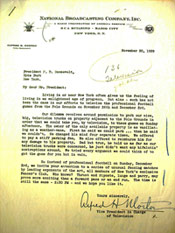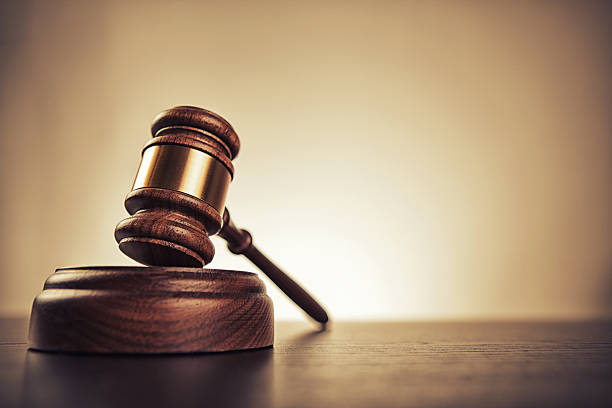TV History: Fencing Foists Football During FDR Administration
NEW YORK: There actually was a day when football wasn't considered the most important thing on television. It was of little consequence to the Commander-in-Chief in 1939, for example, when a vice president at the National Broadcasting Co. wrote to Franklin D. Roosevelt bemoaning a parking dilemma at the Polo Grounds in Manhattan where the Giants used to play.
(click thumbnail)
"Living in or near New York often gives us the feeling of living in an enlightened age of progress," Alfred H. Morton wrote to FDR. "But alas—such has not been the case in our efforts to televise the professional football games from the Polo Grounds on November 26th and December 3rd.
"Our dilemma revolves around permission to park our nice, big television trucks on property adjacent to the Polo Grounds in order that we could take you, by television, to these games on Sunday afternoon. The owner of the only available property is as vacillating as a weather vane. First, he said we could part… then he said we couldn't. He changed his mind for separate times. WE offered to pay a stiff parking fee. We also offered to reimburse him for any damage to his property. Sad, but true, he told us as far as our television trucks were concerned, he just didn't want any hifalutin' contraptions around. We tried every argument we could think of to get the game for you, but in vain.
"So instead of professional football on Sunday, December 3rd, we invite your attention to a series of unusual fencing matches by leading exponents of the art, all members of New York's exclusive Fender's Club. Who knows? Thrust and riposte, lunge and parry may prove more exciting than a forward pass or an end run. The time is still the same—2:30 p.m.--and we hope you like it."
The TV historian who forwarded the letter to Television Broadcast said FDR didn't seem interested in TV. He turned down offers for TV sets from American Television Corp. and Dumont, but finally accepted one from RCA, thanking the company for improving his radio reception.
"But NBC kept sending him letters," the historian wrote. – Deborah D. McAdams

The professional video industry's #1 source for news, trends and product and tech information. Sign up below.
